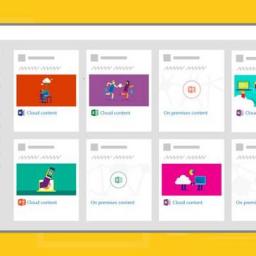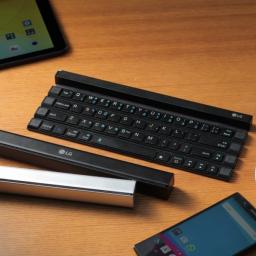Windows 10 might be a welcome respite from recent, unloved versions of Microsoft's flagship operating system, but it's now well-known that Win10 captures an unusually large amount of user data and sends it back to Microsoft. That might have passed muster 20 years ago (
happy birthday, Windows 95!) but customers these days are increasingly aware and concerned over their personal data and what becomes of it.
Enter the Verge, with a
User's guide to the Windows 10 End User License Agreement (EULA), which combs through the document and tries to make sense of the implications for users. Problem is, even if you take a Microsoft-friendly approach to the analysis, the language obviously gives Microsoft lots of leeway to interpret key provisions as it sees fit.
Had your daily dose of irony yet? Then be aware the Verge has some privacy issues of its own. In fact, it's now known that the Verge
sells your user data to upwards of twenty other companies. Better to browser this one with Lynx or with every script-blocker you own set to "maximum."

Work in just about any big office and you have almost certainly been subjected to a semi-built corporate Sharepoint site your boss or the HR department hopes you will use rather than circulating important documents via email. And if you are like most tech-savvy folks, you have found it bafflingly difficult to use.
Microsoft hopes to correct that well-deserved reputation, and is
launching a preview of Sharepoint Server 2016 to raise expectations about the new product.
Microsoft says its made "deep investment in HTML5" to give you "capabilities that enable device-specific targeting of content. This helps ensure that users have access to the information they need, regardless of the screen they choose to access it on." And your users get a consistent experience whatever device they choose to wield, including on touch-enabled devices.
A new "cloud hybrid search" will permit users wielding "SharePoint Server 2013 and Office 365 to retrieve unified search results through a combined search index in Office 365."
The index for that search resides in Office 365, one of many features billed as letting you take advantage of hybrid cloud. The idea is that your on-premises SharePoint can pop the index, or other data, into Microsoft's cloud so you get the on-prem performance you want without having to bulk out yours servers. But of course you do get into PAYG territory with the cloud.
That certainly qualifies as what the Register calls "Buzzword Compliant" but maybe there's true improvement there, too. Search for the expression "Sharepoint sucks" today and you'll get 209,000 hits
including this one. Stick around and see if next year Microsoft turns the corner and makes Sharepoint something people find useful and effective.

Japan is home to an extremely important vessel:
it's the ship that lays the trans-oceanic cables that form the backbone of telecommunication, that is, the Internet. Satellites play an increasingly important role in shipping packets, but the bulk of the connections pass through underwater cables.
The laying process involves checking submarine geography to avoid steep rises and falls, and then calculating tide movements and the trajectory of the falling cables in relation to ship speed, the firm said. Only then are the cables laid and buried by the Subaru, which was built in 2000.
The cables, encased in sheaths of rolled metal, are laid and buried deep - at an average of 1,000-1,500 meters below the sea surface - so as not to interfere with fishing vessels. However, the Subaru can lay cables much deeper at 8,000 meters below the waves.
Speaking of backbones, the Internet's backbone - in the
protocol sense of the word - remains unfortunately vulnerable. The issue is the Border Gateway Patrol protocol, at the heart of routers everywhere. And its vulnerabilities are not being tackled with a level of effort commensurate with their importance.
Large routers operated by Internet service providers and major corporations use BGP to figure out how to get data between different places. Each of these major routers turns to others like itself-ones operated by other companies-for the information it needs to most efficiently dispatch data to its destination. Companies operating the routers manually choose which other routers theirs will trust.
Unfortunately, BGP doesn't have security mechanisms built in that allow routers to verify the information they are receiving or the identity of the routers providing it. Very bad things can happen when routers spread incorrect information about how to route data, intentionally or otherwise.
That problem has been known for decades. It was the basis of the hacking group L0pht's 1998 claim before Congress that they could take down the Internet in 30 minutes. But incidents that have illuminated BGP's flaws have prodded some security companies to take it more seriously.
Read more about it
at Technology Review, who is reporting on one of the important presentations revealed at the 2015 Blackhat Conference
discussed here on |. earlier this month.

If you are frustrated with your smartphone's soft keyboard, you aren't alone. Despite their advocates, many gadget-users feel more productive on a physical keyboard, and that means there's a market for innovative or high quality ones.
Get ready for the IFA 2015 conference in Berlin, Germany, where LG Electronics (LG) will present a
new, portable, rollable wireless keyboard. Unlike other portable keyboards on the market, LG's Rolly Keyboard (model KBB-700) folds up along the four rows to create an easy-to-carry "stick" that fits into your pocket, purse, or briefcase.
The typing on Rolly Keyboard is extremely comfortable because its 17mm key pitch is nearly as generous as the 18mm key pitch found on most desktop keyboards. It is made of impact-resistant and durable polycarbonate and ABS plastic. So the typing on the keyboard offers satisfying tactile feedback not found on flexible silicone keyboards. Two sturdy arms fold out to support smartphones as well as tablets in an upright position. It simply unfolds the Rolly Keyboard, enables the auto pairing function to connect easily to two different devices at the same time via Bluetooth 3.0 with the ability to toggle between the two with a simple key press. A single AAA battery powers the keyboard for up to three months of average use.
Engadget reports, "The keyboard is just the start: the company says it plans to offer even more "input devices" in the next few months." Recently, LG has announced that from the end of August it will start rolling out
four new 4K Ultra HD OLED TVs across its US, UK, German and Korean markets. The four new models add new features and form factors to the brand's existing OLED range.


